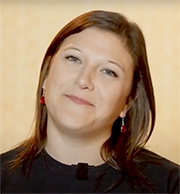
Not Self-Care but Taking Care
By Marin Marks | January 2022
 It is no secret that we are all feeling overwhelmed, overworked, under-rested and full of the fatigue of it all! So, “What are you doing for self-care?” Deep down, I know it means to take care of ourselves. But all I picture when this question is asked is bubble baths and spa days, which is a joke – school counselors don’t got time for that! Full disclosure: Self-care is my trigger word.
It is no secret that we are all feeling overwhelmed, overworked, under-rested and full of the fatigue of it all! So, “What are you doing for self-care?” Deep down, I know it means to take care of ourselves. But all I picture when this question is asked is bubble baths and spa days, which is a joke – school counselors don’t got time for that! Full disclosure: Self-care is my trigger word.To start, I don’t use the word self-care anymore. Instead, I call it what it is. “To take care of myself” sounds more functional, logical and meaningful to me, versus to have “self-care.” In addition to this new internal verbiage, I looked inward and found what this really means to me. What does taking care of myself really entail? What do I need in order to function at an average level? What do I need in order to function at an optimum level? The answer is sleep, and eight hours of it.
It is so incredibly important to have ample sleep, most notably because it is biologically necessary. During sleep the brain stores new information and gets rid of toxic waste; the body repairs itself at the cellular level, restores energy and releases molecules like hormones and proteins; nerve cells communicate and reorganize supporting healthy brain function. Sleep affects brain function including focus, concentration, decision making, problem solving, memory, creativity and learning. It is also needed for emotional health; during sleep the brain activates to regulate emotions. Have you ever had a decision to make or problem to solve and someone suggested that you “sleep on it”? There is scientific basis for that!
So many of us work ourselves until and through sickness, and too many school counselors and educators are having strong episodes of stress that result in hospitalization. We need to do something. We need to sleep.
So many of us are functioning without enough sleep that The Centers for Disease Control and Prevention (CDC) has considered insufficient sleep a public health problem! But there is hope with a new science supported sleep strategy: Cognitive Behavioral Therapy – Insomnia (CBT-I). Research suggests that CBT-I is as effective as sleep aids, and there is even a free app from the U.S. Department of Veteran Affairs with some heavy contributors: “CBT-I Coach was a collaborative effort between VA’s National Center for PTSD, Stanford School of Medicine, and DoD’s National Center for Telehealth and Technology.” The components of CBT-I are sleep hygiene, sleep restriction and stimulus control.
Still, knowing that we need more sleep and why, and actually making time for it are two very different things. But sleep truly is the most important pillar to our health and well-being, which is crucial to school counselors as we support students, families and our colleagues. I think about a work day that begins after a proper bedtime and sleep, versus a work day that begins after going to bed too late from watching a new TV show episode. Waking up late after hitting snooze, with a rushed morning, does not foster patience or compassion needed for the positive relationships that I work hard to support in order to advocate for my students.
It is difficult to have patience in advocating for our students when we are not healthy. We are three times more likely to catch a cold if we sleep less than 7 hours a night; and in the time of COVID, cold symptoms can sound concerning and frightening. The number of hours a person sleeps each night is a powerful predictor of immunity to susceptibility to sickness.
So, sleep is important . . . Now what? Think about all the factors that can interfere with a good night's sleep – such as the work day and stress, family responsibilities, unexpected life challenges and illness. Are any of these factors non-negotiable? Which factors are negotiable, and how much are you willing to negotiate them? Once we identify what we are not willing to change, then we can shift to improving the factors we are willing to change, and begin to function closer to our optimum levels all throughout our lives!
Take care of yourself, and get some sleep.
Contact Marin Marks, WSCA Professional Development chair, at marinmarkswsca@gmail.com.